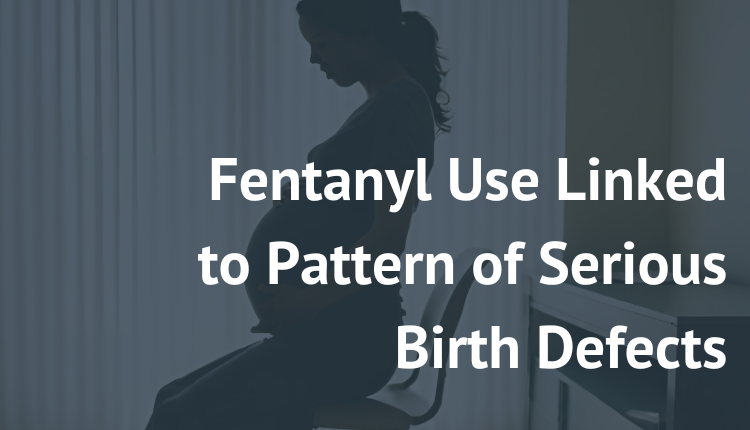While the negative effects of drug use during pregnancy are already well-known, researchers are continuing to uncover new risks linked to drug abuse in pregnant people. Recently, clinical researchers began to link in-utero exposure to fentanyl with a pattern of serious birth defects.
In a study published in 2023, researchers discovered a concerning link between prenatal fentanyl exposure and a newly identified syndrome. This syndrome is characterized by distinct features such as short stature, small heads, congenital anomalies, and unique facial characteristics. To investigate this, six patients were initially enrolled in a research study, and four similar cases were contributed by external clinicians, bringing the total number of reported cases to 10. While this is not a large sample, numerous anecdotal reports from hospitals seem to indicate wider evidence of this syndrome (Wadman et al., 2023).
Symptoms
What’s striking is that all of these individuals shared a common thread. They were born after pregnancies with prenatal exposure to recreational/non-prescription opioids, with fentanyl being the most prominent culprit. These symptoms differed from Fetal Alcohol Syndrome (FAS), and prenatal alcohol abuse was not recorded in these cases. This raises significant concerns about the potential effects of fentanyl abuse during pregnancy.
The syndrome displayed a range of symptoms, including cleft palate, deformed feet, brain defects, and genital deformities. Additionally, the individuals exhibited features such as short thumbs, single palmar creases, and fused toes. Interestingly, some individuals in the study displayed an underdeveloped corpus callosum. This is a part of the brain that helps connect its two hemispheres. Known diseases and conditions that cause these birth defects were ruled out, and no shared genetic cause was identified among the affected individuals (Wadman et al., 2023).
Impact
These findings emphasize the urgent need for greater awareness regarding the risks of fentanyl abuse during pregnancy. While this study may suggest the potential for fentanyl to be a factor that causes birth defects, it’s important to exercise caution before definitively establishing causality, emphasizing the necessity for further data replication and in-depth research (Wadman et al., 2023).
The discovery of a novel syndrome associated with prenatal fentanyl exposure underscores the importance of seeking treatment for addiction, especially among pregnant individuals. Fentanyl abuse, as highlighted in this research, can have devastating consequences not only for the person using the drug but also for their unborn child. The potential birth-defect effects of fentanyl pose a significant risk to fetal development, resulting in a range of congenital anomalies and health issues that can last a lifetime. This serves as an urgent reminder of the need for pregnant individuals struggling with substance abuse to seek help, both for their well-being and the well-being of their unborn children.
Treatment
Treatment for addiction, including opioid addiction, can significantly reduce the risks associated with substance abuse during pregnancy. Many recreational drugs, not just opiates, pose great risk to pregnant people and their unborn babies (NIDA, 2024). Seeking treatment provides individuals with the necessary support, guidance, and medical care to overcome their addiction. Seeking help provides an opportunity for a healthier and safer environment for both mother and baby. This research should serve as a call to action for healthcare providers, policymakers, and society as a whole. Addiction treatment should be more accessible and approachable. By doing so, we can help prevent the tragic outcomes linked to prenatal fentanyl exposure and ensure a brighter future for families affected by addiction.
For anyone seeking treatment and support on their journey to recovery from addiction, New Paradigm Recovery in Vienna, Virginia, stands as a beacon of hope and healing. Our experienced professionals are committed to helping individuals reclaim their lives. Clients escape from the grip of addiction through our intensive outpatient program. Don’t face addiction alone. Reach out for the guidance, care, and resources you need to overcome these challenges and embark on the path to recovery.
References:
NIDA. 2024, January 18. Substance Use While Pregnant and Breastfeeding. Retrieved from https://nida.nih.gov/publications/research-reports/substance-use-in-women/substance-use-while-pregnant-breastfeeding on 2024, March 19
Wadman, E., Fernandes, E., Muss, C., Brucker, W., Alves, C., & Gripp, K. W. (2023). A novel syndrome associated with prenatal fentanyl exposure. BRIEF REPORT, 1(1), 100834. https://doi.org/10.1016/j.gimo.2023.100834
nprecovery.com

